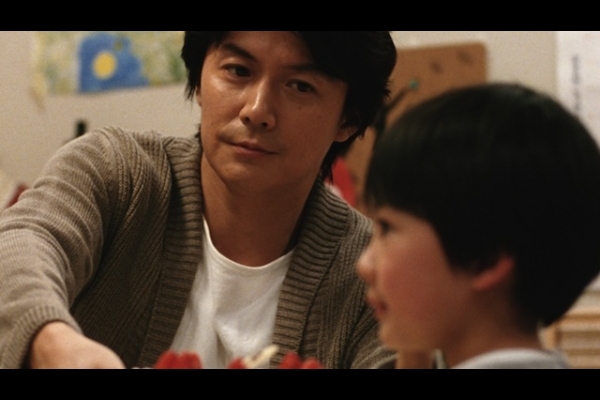Hirokazu Kore-eda’s Like Father, Like Son, poses an excruciatingly difficult question, one that would surely crush any doting mother or father: How do you react to the news that your adorable six-year-old son was switched at birth and that he has to be returned to his biological parents?
That’s the appalling predicament a young, upwardly mobile Japanese couple find themselves in after receiving a phone call from the hospital in which he was born.
Like Father, Like Son, a Japanese film with English subtitles that opens in Toronto and Vancouver on March 7, explores the intricacies of this conundrum with tact and sensitivity.

Ryota (Masaharu Fukuyama), an architect, and his stay-at-home wife, Midori (Machiko Ono), are the proud parents of a bright, polite and obedient boy. Keita (Keita Ninomiya) attends a private school and is learning to play the piano. If all goes well, he will join the ranks of Japan’s elite in the future.
Ryota and his family live in a luxury condo in Tokyo, and he’s working six days a week and nights to ensure that their high standard of living remains intact. When Midori suggests that he should be spending more time at home, he agrees. But is he really prepared to slow down?
That issue is consigned to the back burner when the hospital calls and DNA tests reveal that Keita is indeed some else’s son. Ryota and his wife are thrown into a state of anguish and confusion. What should they do? How can they possibly give up their beloved Keita?
They confer with hospital officials, and Ryota consults his lawyer, an old school friend. Finally, they meet the other parents, as well as their biological son, from whom they seem detached. Dazed by the rush of events, Ryota berates his wife, insinuating she should have known that Keita was not their real son.
The two set of parents, their children in tow, continue to meet in the hope of reaching an agreement about the future of the boys. But because Ryota is a snob and thinks he’s socially superior to his counterpart, a simple shopkeeper, he arrogantly demands the custody of both boys, an idea the other parents firmly rebuff.
Common sense finally prevails and both sides resolve the problem in the best possible manner. In the process, Ryota becomes a better father and a better person, learning how to balance the conflicting demands of life.
The winner of the Jury Prize at the 2013 Cannes Film Festival, Like Father, Like Son is by turns earnest and moving, enveloping a viewer in the complexity of a situation that no parent should ever have to face.